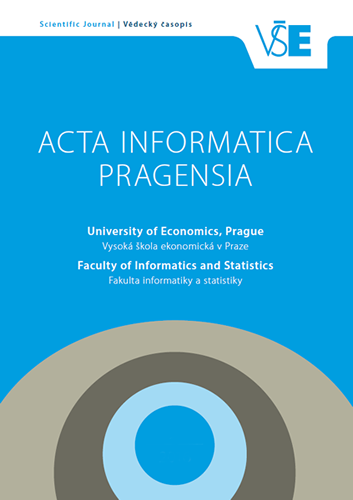Poznámky k autorskoprávním aspektům užití autorských děl při digitální výuce
Comments on Copyright Aspects of Use of Copyright Works in Digital Teaching
Author(s): Martin BoháčekSubject(s): ICT Information and Communications Technologies, Commercial Law
Published by: Vysoká škola ekonomická v Praze
Keywords: Copyright act; Digital teaching; E-learning; Online learning; Statutory teaching exception (license); Schoolwork; EU Directive No. 790/2019 (Digital directive); Information directive
Summary/Abstract: In the current COVID-19 pandemic, teachers and students routinely take part in schooling via digital technologies, using their own and other authors' copyrighted works, even without their permission or licence. The aim of this article is to identify these aspects of copyright in online teaching and to offer solutions to them. Some of these aspects are addressed by EU Directive No. 2019/790 (Digital Directive), the implementation of which was reflected in the draft amendment to the Czech Copyright Act, which had not addressed them. To fulfil this goal, the author asked several research questions: What forms of use of copyright works refer to the terms e-learning, online teaching or digital teaching? Is it possible to apply a statutory teaching exemption to the use of copyright works of other authors without their consent under the current wording of the Copyright Act (AutZ)? Is there any case law regarding such an exemption that would be applicable to e-learning? How will the conditions for the use of copyright works in e-learning change with the AutZ amendment following the implementation of EU Directive No. 2019/790 (Digital Directive) and what practical organizational recommendations can be made? To the above goal and questions, we conducted research in Czech law relating to the use of copyright works in digital teaching. For this purpose, we used the method of empirical research of Czech legislation and case law containing the terms e-learning and online or digital teaching. We also employed a comparative method to compare Czech law and EU law. The article is primarily an overview with elements of reflection. It does not comprehensively address all aspects of copyright in teaching, such as plagiarism in general, but identifies copyright aspects specific to e-learning.
Journal: Acta Informatica Pragensia
- Issue Year: 11/2022
- Issue No: 2
- Page Range: 152-178
- Page Count: 27
- Language: Czech

